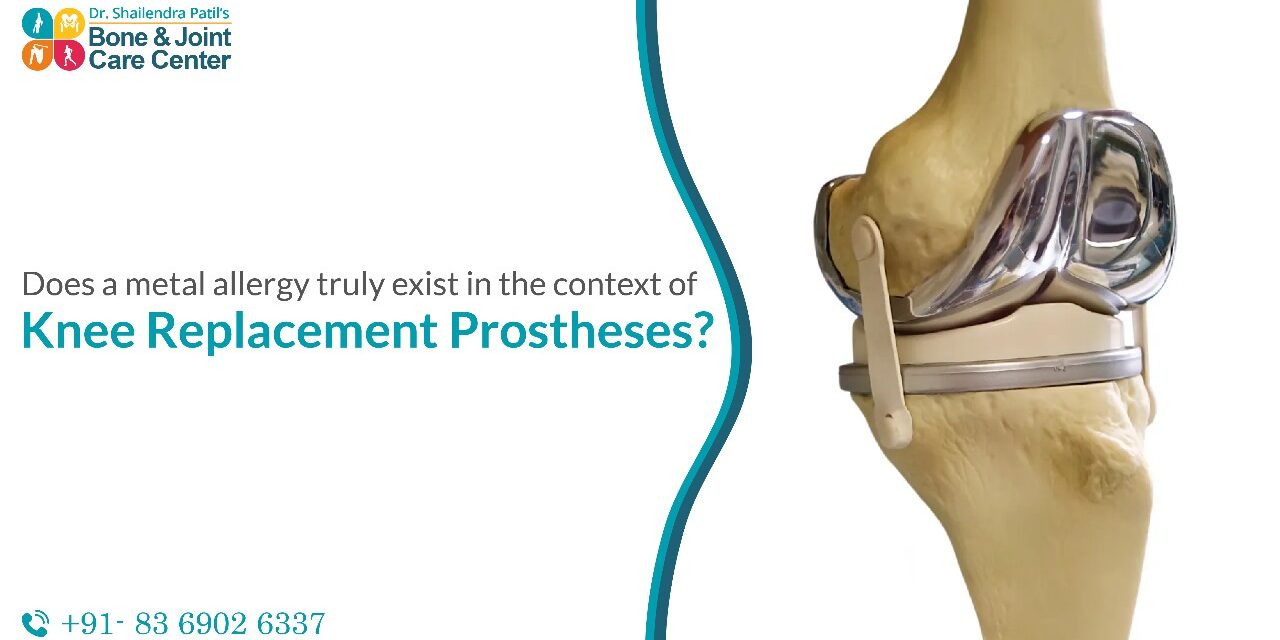For individuals grappling with the burdens of debilitating knee conditions, knee replacement surgery or knee arthroplasty offers a promising chance at reclaiming their quality of life. However, a growing concern has recently surfaced regarding the potential influence of metal allergy in patients with knee replacement implants, also known as prostheses. Metal allergy, particularly sensitivity to nickel, is a prevalent issue. At the same time, most knee replacement implants are crafted from cobalt-chrome alloys, which may contain trace amounts of nickel. It has naturally raised questions about the likelihood of these implants triggering allergic reactions within the body.
Addressing the Concerns
The debate surrounding metal allergy and knee replacement implants has gained momentum. Still, it’s crucial to discern scientific facts from misconceptions. Recent research has illuminated this issue, and several critical points have emerged:
- Different Immune Mechanisms
The immune mechanism responsible for skin reactions due to metal allergies operates differently from the immune system inside the body. This distinction challenges the assumption that skin reactions inevitably translate to allergic reactions within the body.
- Inaccurate Skin Patch Testing
Skin patch tests for allergies have proven highly unreliable, often yielding false positive results. Relying solely on patch tests may unnecessarily alarm patients.
- Lack of Evidence
Despite the apprehensions about metal surgical implants potentially causing allergic reactions within the body, there exists no concrete evidence supporting this hypothesis.
Symptoms of metal allergy in patients with knee replacement implants
The symptoms of metal allergy in patients with knee replacement implants can vary depending on the individual’s sensitivity to the metal and the severity of the reaction. Some common symptoms include:
- Pain and swelling around the implant
- Rash and itching
- Burning sensation
- Joint stiffness leading to limited range of motion
- Fatigue and malaise
- Headache and dizziness
- Occasional symptoms like nausea and vomiting can also be observed in some patients. The severity and combination of these symptoms can vary depending on an individual’s sensitivity to the metal used in their knee replacement implant.
Patient Autonomy and Surgical Expertise
While scientific evidence suggests that concerns regarding metal allergies may lack a substantial foundation, you must remember that patients retain the right to make choices regarding their healthcare. Similarly, knee surgeons have the prerogative to decline procedures if they believe such interventions may not be in the patient’s best interests or if they are uncomfortable conducting them. At the Bone and Joint Care Center, they are committed to patient autonomy and surgical expertise. Hence, they ensure that health care decisions are made with the utmost consideration and care.
Conclusion
The concerns surrounding metal allergy and knee replacement implants might be deeply rooted in misinformation and apprehension rather than substantial scientific evidence. Recent research has offered invaluable insights, showcasing that nickel allergy doesn’t pose a significant challenge in the context of knee replacement surgery.
If you have a metal allergy, Golden Knee Replacement Surgery is the recommended option for you. This procedure is designed to improve your quality of life and relieve the pain and discomfort associated with knee issues. As you embark on this life-changing journey towards this Knee Replacement surgery, the Bone and Joint Care Center is fully prepared to offer the necessary care and expertise to enhance your overall well-being.







